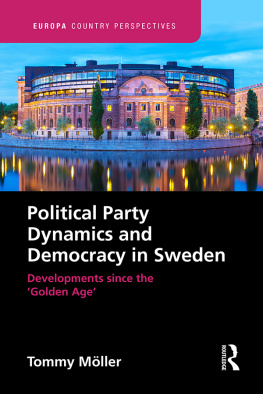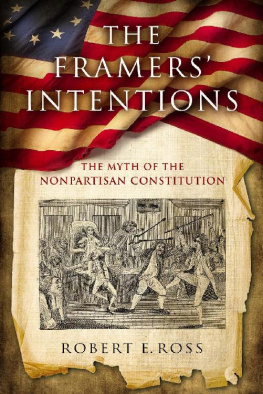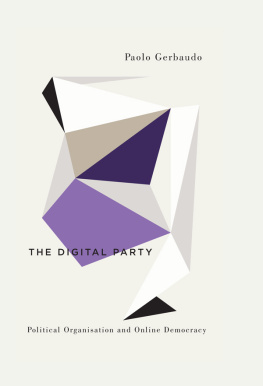Political Party Dynamics and Democracy in Sweden
Sweden has often been described as a democratic forerunner, with one of the worlds most stable party systems and with a well-functioning parliamentary system. However, the political landscape in Sweden has undergone a rapid change in recent years. The institutions of the political system not least political parties appear from a historical perspective to have become partly dysfunctional. The previously stable party system has become unstable. Consequently, it has become more difficult to form governments, and more difficult for governments to govern. The famous culture of consensus has been replaced by a harsher and more confrontational political climate; the tone in political debate has become more aggressive.
During the so-called golden age of the party system, which lasted for a few decades from the middle of the twentieth century, parties could successfully mobilize broad and well-defined social interests with strong collective identities. Now, other conditions apply that have dramatically changed the role of parties in the democratic process. Parties have gone from being member-based popular movements to becoming professionalized voter-orientated campaign machines. Short-sightedness and a focus on median voters mean that the established parties have become increasingly similar, and populist parties have had great success in recent decades as a consequence.
This volume, aimed at political scientists and those interested in discussion and analysis of Swedish political party dynamics, focuses on political parties in Sweden, how they have changed and what the changes mean in a wider sense.
Tommy Mller is Professor of Political Science at Stockholm University, Sweden. He has previously taught at the Department of Government at Uppsala University and has been engaged as an expert in various government committees. In his research, in addition to his interest in political parties, he has focused especially on political history, political leadership and constitutional politics. Mller is a well-known expert commentator on Swedish domestic politics in the Swedish media.
Europa Country Perspectives
The Europa Country Perspectives series, from Routledge, examines a wide range of contemporary political, economic, developmental and social issues from areas around the world. Complementing the Europa Regional Surveys of the World series, Europa Country Perspectives is a valuable resource for academics, students, researchers, policymakers, business people and anyone with an interest in current world affairs.
While the Europa World Year Book and its associated Regional Surveys inform on and analyse contemporary economic, political and social developments at the national and regional level, Country Perspectives provide indepth, country-specific volumes written or edited by specialists in their field, delving into a countrys particular situation. Volumes in the series are not constrained by any particular template, but may explore a countrys recent political, economic, international relations, social, defence, or other issues in order to increase understanding.
Russian Nationalism and Ethnic Violence: Symbolic Violence, Lynching, Pogrom, and Massacre
Richard Arnold
Beyond the Drug War in Mexico: Human rights, the public sphere and justice
Wil G. Pansters, Benjamin T. Smith, Peter Watt
Greece in the 21st Century: The Politics and Economics of a Crisis
Edited by Constantine Dimoulas and Vassilis K. Fouskas
The Basque Contention: Ethnicity, Politics, Violence
Ludger Mees
Barcelona, the Left and the Independence Movement in Catalonia
Richard Gillespie
Political Party Dynamics and Democracy in Sweden
Developments since the Golden Age
Tommy Mller
For more information about this series, please visit: www.routledge.com/Europa-Country-Perspectives/book-series/ECP
First published 2020
by Routledge
2 Park Square, Milton Park, Abingdon, Oxon OX14 4RN
and by Routledge
52 Vanderbilt Avenue, New York, NY 10017
Routledge is an imprint of the Taylor & Francis Group, an informa business
2020 Tommy Mller
The right of Tommy Mller to be identified as author of this work has been asserted by him in accordance with sections 77 and 78 of the Copyright, Designs and Patents Act 1988.
All rights reserved. No part of this book may be reprinted or reproduced or utilised in any form or by any electronic, mechanical, or other means, now known or hereafter invented, including photocopying and recording, or in any information storage or retrieval system, without permission in writing from the publishers.
Trademark notice: Product or corporate names may be trademarks or registered trademarks, and are used only for identification and explanation without intent to infringe.
Partly based on the book Efter Guldldern (After the Golden Age), originally published in Swedish by Liber in 2018. This book includes two additional chapters.
British Library Cataloguing-in-Publication Data
A catalogue record for this book is available from the British Library
Library of Congress Cataloging-in-Publication Data
A catalog record has been requested for this book
ISBN: 978-0-367-28149-6 (hbk)
ISBN: 978-0-429-30037-0 (ebk)
Following the Swedish parliamentary elections in September 2018, the countrys political system imploded. After the elections, the parliament (Riksdag) decided to dismiss the incumbent Prime Minister, Stefan Lfven, which meant that the red-green coalition Government in office consisting of the Sveriges Socialdemokratiska Arbetarepartiet (SAP Swedish Social Democratic Party) and the Miljpartiet de Grna (MP Green Party) was transformed into a transitional government whose constitutional task was limited to administering day-to-day work; no political initiatives were allowed. After more than four months, a new Government was finally formed. Or, more accurately: exactly the same government that had previously been voted out by parliament was now supported by the same parliament because two of the parties that had voted against Lfvens Government had now changed their minds and chosen to support it.
What was the reason for this dramatic episode in Swedish politics? The simple answer is that the interlocks between the parties were of such a nature that all preconceived government formations proved unthinkable. In the end, the result was that the red-green coalition a minority government since taking office in 2014 entered into a broad agreement with two opposition parties, the Centerpartiet (CP Centre Party) and the Liberalerna (Liberals). However, the price for maintaining power was high. The two supporting parties had a major impact on government policy in the coalition agreement. Since September 2018, therefore, a Social Democrat-led coalition has governed the country on a right-wing liberal platform, with policies that the same party described as irresponsible and deeply unfair in the previous election campaign.
The dynamics behind such an unexpected outcome in the formation of the Government are complex, and must be understood in the light of changes in the Swedish party system.
The political landscape in Sweden has undergone a rapid change in recent years. Sweden has often been described as a democratic forerunner, with one of the worlds most stable party systems and with a well-functioning parliamentary system. However, the country has begun to be perceived as a nation with significant problems. Currently, the institutions of the political system not least the political parties appear from a historical perspective to have become partly dysfunctional. The previously stable party system has become unstable. Consequently, it has become more difficult to form governments, and more difficult for governments to govern. The famous culture of consensus has been replaced by a harsher and more confrontational political climate; the tone in political debate has become more aggressive.










